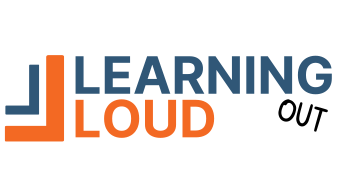Description
Disengaged, unmotivated students are one of the biggest challenges every educator faces.
Introducing comedy and humor can often be the key to dissolving apathy and creating a vibrant, thriving learning environment.
This course introduces practical activities alongside current theories from the fields of education and neuroscience to empower teachers to introduce more comedy and humor into their classrooms.
During this course, participants will explore different types of humor to discover their own authentic comedic style, build awareness of voice and body language, and learn how to craft original jokes to enhance their oral and written presentation skills.
Through group planning sessions, participants will analyze teaching materials that incorporate comedy and adapt them to create their own funny, informative, and engaging lessons.
Participants will also be introduced to improvisational techniques to use in the classroom which foster group trust, encourage risk-taking, build student confidence, and reduce anxiety.
By the end of this course, participants will have a deeper understanding of how humor impacts learners’ engagement, comprehension, and sense of belonging.
They will be able to plan and deliver engaging lessons, create teaching materials that incorporate comedy, and use improvisation techniques to create a fun and motivating learning environment.
What is included
Learning outcomes
The course will help the participants to:
- Apply their authentic comedic style to enhance their presentation skills;
- Integrate comedy into their teaching materials to increase student engagement;
- Utilise humor in the classroom to foster inclusivity, build trust, and reduce student anxiety.
Tentative schedule
Day 1 – Course introduction
- Introduction to the course, the school, and the external week activities;
- Icebreaker activities;
- Presentations of the participants’ schools;
- Comedy in the classroom: the science behind laughter.
Day 2 – Improvisation introduction
- Yes, and… introduction to improvisation;
- Improvisation workshop: fostering group trust through laughter;
- Plan and present original activities.
Day 3 – What makes us laugh?
- Categories of humor-find your funny;
- Benign violation theory- what makes us laugh and why;
- Joke writing workshop.
Day 4 – Introduction to comedy
- Integrating comedy into students’ writing tasks;
- Liven up a dull text-comedy in teacher presentations;
- The dark side of humour-taboos and boundaries.
Day 5 – Comedic presentation
- Prepare a comedic presentation;
- Evaluation and feedback;
- Reflection- future goals.
Day 6 – Course closure and cultural activities
- Course evaluation: round-up of acquired competencies, feedback, and discussion;
- Awarding of the course Certificate of Attendance;
- Excursion and other external cultural activities.
About this course
This course has been designed within the Erasmus+ Project: LOL: Learning Out Loud (2022-2024)
This project aimed to develop inclusive and innovative teaching practices inspired by Theater (Humor, Stand Up Comedy, Improvisation Theater) and Positive Psychology in Education (Positive Education) with a special focus on teaching foreign languages to adult learners.
Other Project outcomes:
- 2 online courses for teachers and educators freely available – Completed
- Handbook to improve your lessons through humor and positive education – Completed








